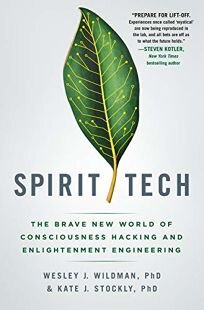When London imam Asim Khan asked ChatGPT, an artificial intelligence chatbot developed by OpenAI, to write a khutbah (sermon) on taqwa (God consciousness) that lasts 10 minutes, he was surprised by the results, which left him “lost for words.” The generative AI program provided a sermon that was not only lucid, but eloquent.
He posted the video on X (formerly known as Twitter). While some commenters warned that AI would be “more harm than good” and that “Shaikh AI” should not replace the counsel of trained Islamic scholars, Khan also joked that his career might be over given how well ChatGPT responded to the prompt.
Jokes and gimmicks aside, there are now entire websites devoted to providing AI tools for pastors, preachers and other religious leaders looking to get a leg up on sermon prep. At Sermonoutline.ai — owned and operated by Sermon Central and its parent company, Outreach Inc. — pastors are promised an AI sermon generator that can produce “biblical preaching” for their next Sunday service. For just $7.50 a month, subscribers have access to sermon outlines, starter ideas and full sermon manuscripts “using the power of AI,” according to the site.
Perhaps aware of potential apprehension, one of the site’s FAQs is: “What if my church finds out I used this site?” The response:
Sermon Outline AI is a reference tool for preachers. … Preaching in any context requires knowing your audience and making your material personal. Sermon Outline AI can’t do that, only the preacher can. If your church finds out you’re here, great! They’ll know you value your time.
Beyond writing Friday khutbahs and Sunday sermons, AI has numerous practical applications for religious communities and in worship spaces, say some leaders. At an Exponential Conference at First Baptist Church Orlando in March 2024, speakers Kenny Jahng, Yvonne Carlson, Josh Burnett and Corey Alderin talked about how AI could be used to boost a church’s community engagement, provide virtual worship services and create small-group Bible study guides.
As ethical reflections among religious leaders over AI’s use in everything from fatwas and Bible translation to the creation of autonomous weaponry and surveillance continues, communities of all kinds are adopting it — or adapting to it — as AI seems set to become a banal aspect of our everyday social, economic and religious lives (or already is).
Debates about the best ethical approach — including whether an AI religion can save or doom us all — will intensify. In the meantime, pastors are using it to edit sermons, and there is Robo Rabbi for the Jewish faith; KhalsaGPT for Sikhs; Mindar, an android priest, for Buddhism; and a multilingual Islamic chatbot named “Ansari” offering spiritual remedies and Islamic perspectives in Arabic, Bahasa Indonesian, Bosnian, English, French, Turkish, Urdu and other languages. Perhaps appealing to the growing ranks of the “spiritual but not religious,” ChatwithGod.ai wants to expand access to spiritual guidance for seekers from all religious backgrounds. It promises to “engage in conversation” with users “receiving personalized religious verses and comfort.”
While much of the conversation around AI — and generative AI in particular — can be alarmist, this resource focuses on the technology’s increasingly common uses in religious communities and places of worship around the world.
It provides background, related stories, sources and relevant resources for understanding how AI is already impacting the everyday realities of our spiritual lives.



